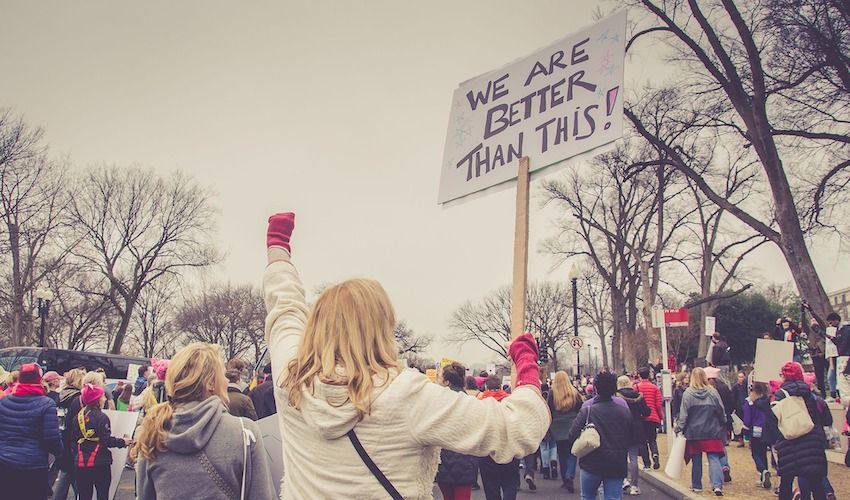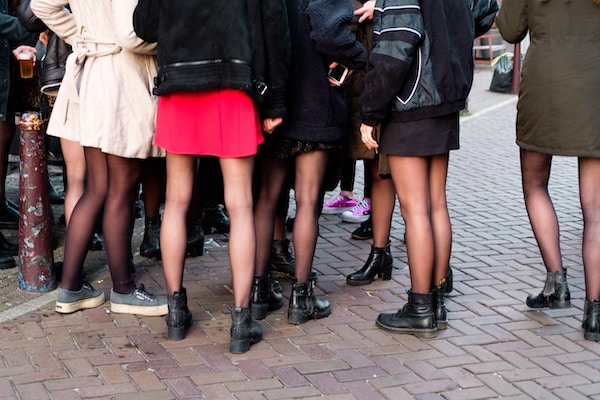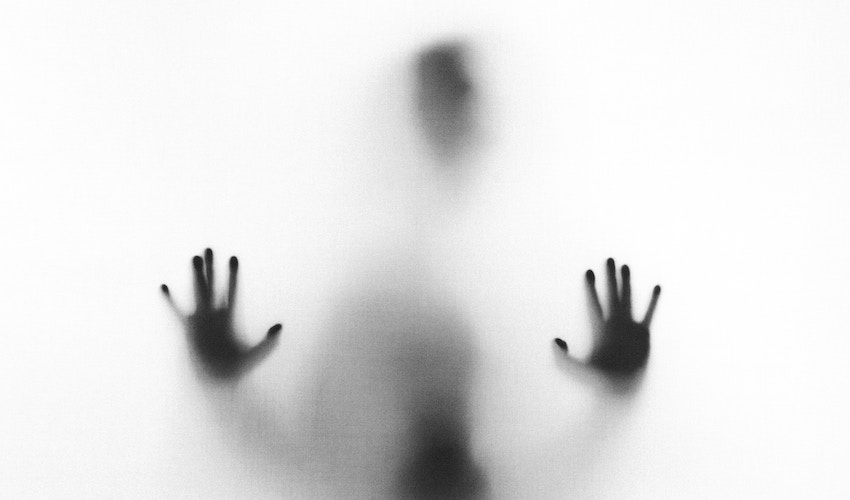


It’s nearly the end of the second decade of the 21st century and I can’t believe we are still talking about slut-shaming.
For the lucky souls who don’t know what slut-shaming is, it consists of criticising people - particularly women and girls - who do not fit society’s expectations in relation to sexuality, and sometimes involves blaming sexual assault victims for what has been done to them.
You might have naively thought that slut shaming was gone for good, but sadly it is still rife in our society. You might also think it is not that big of deal and that victims of slut-shaming should just stop being 'snowflakes', but the truth is slut-shaming, as its name indicates, shames victims, preventing them from pressing charges against their abusers.
Slut-shaming is so pervasive that hearing, time after time, that what a victim wore / said / did / drank somehow caused their assault leads other victims to believe they have done something to cause what happened to them.

Pictured: A victim in a recent trial said she hadn't done anything to "make" her abuser rape her.
A recent rape trial brought the impact of slut shaming into light - as if that was needed. When recalling her rape, a woman told the jury tasked with hearing her case, she kept thinking: “I didn’t do anything to make you do this to me, I didn’t speak to you.”
Let me ask you a question: what exactly can a woman or a man do that would lead someone to rape them? Is it something they say, a look they give, the length of their skirt, one too many buttons open on a shirt, high heels, their perfume?
There is one thing and one thing only that causes rape and sexual assaults: the abuser. If an abuser wants to abuse, they will do so, regardless of what their victims said, did or wore.

Pictured: Does the length of a woman's skirt ever "justify" raping her? No, no, no.
You sometimes hear in the case of female victims that they wore revealing clothes, flirted with their abuser or 'led them on,' but those are just excuses - and that's putting it mildly.
If we followed this 'logic', it would mean women who never speak to or flirt with anyone, never drink, never go out in clubs, never walk home alone or never wear short skirts, high heels or show a bit of cleavage are safe from rape. But we all know that’s not true.
The reality is that rape victims - that includes men too - have varying profiles and can’t all be narrowed to the image of what society describes as a “slut” - a sexually promiscuous, flirtatious individual with loose morals, who “was asking for it."
I go back to my previous statement, the one and only common denominator in all rape and sexual assaults is that an abuser laid claim to someone’s body without their consent.

Pictured: How about we support victims instead of blaming them?
How many times have you heard parents tell their daughters “boys will be boys”, “you shouldn’t go out dressed liked that”, “do not meet strangers in private”? How many times have you heard parents tell their sons “no means no”,“what a girl wears is not an invitation to touch her”, “you shouldn’t rape girls”?
This dichotomy puts the onus on girls and women to protect their virtue or virginity, while boys and men are seemingly allowed to abuse women that fail in their task, because they are fair game.
Would you tell someone whose phone has just been stolen that it is their fault for tempting thieves with an expensive phone? Would you tell someone who has just been punched in the face that they shouldn’t have been there at that time? Then why would you tell a sexual assault victim that they are, in part, responsible for their assault?
Rape and sexual assault are the only crimes in which a victim's life, sexual history and interests, past relationships, drinking habits, clothing, internet browsing history, among other characteristics, are dissected as part of a trial, as if any of the above somehow justified their assault or implied they could not have been assaulted.
It’s 2019, soon to be 2020. It’s high time we saw the errors in our ways and support victims of sexual abuse instead of blaming them for what someone else did to them.
Comments
Comments on this story express the views of the commentator only, not Bailiwick Publishing. We are unable to guarantee the accuracy of any of those comments.